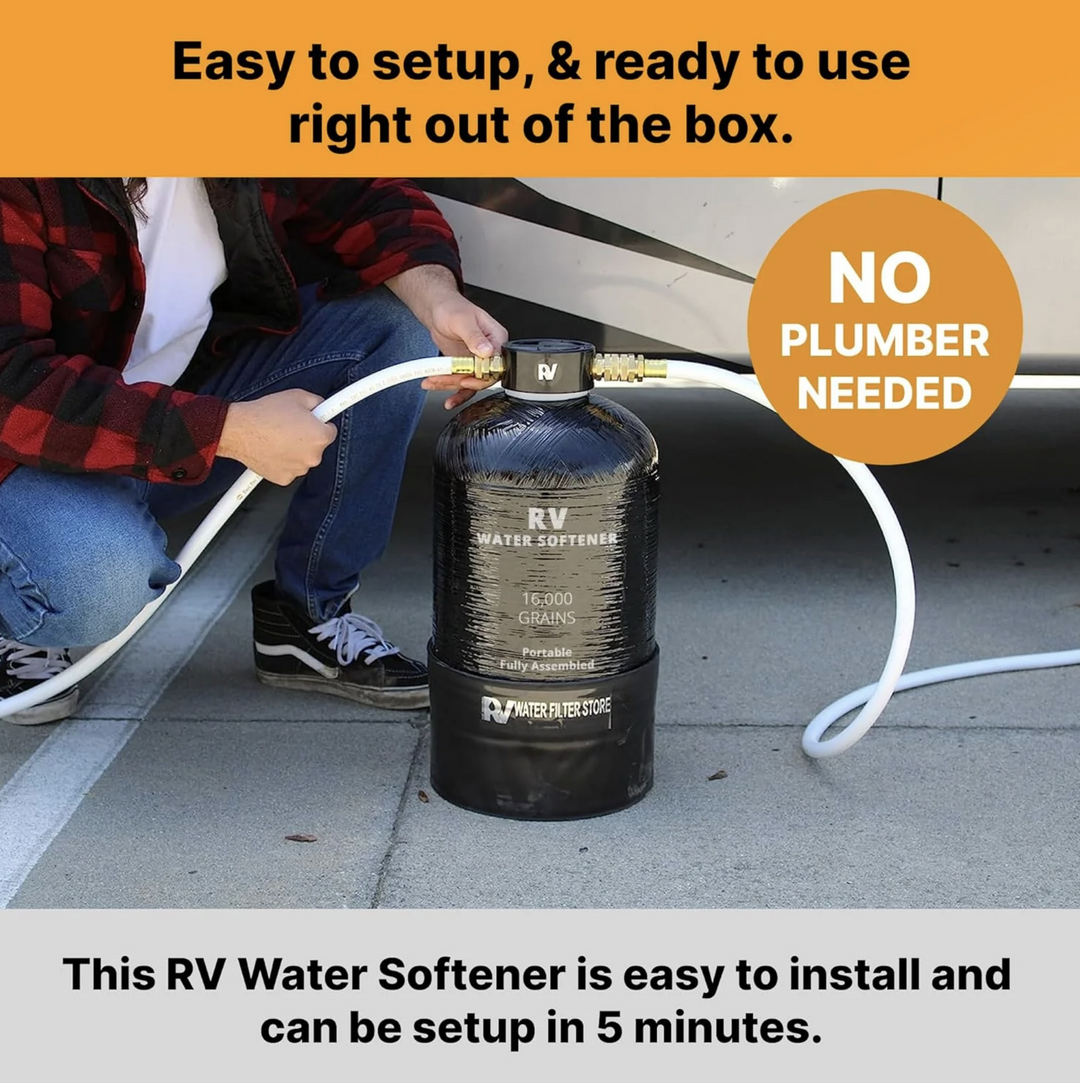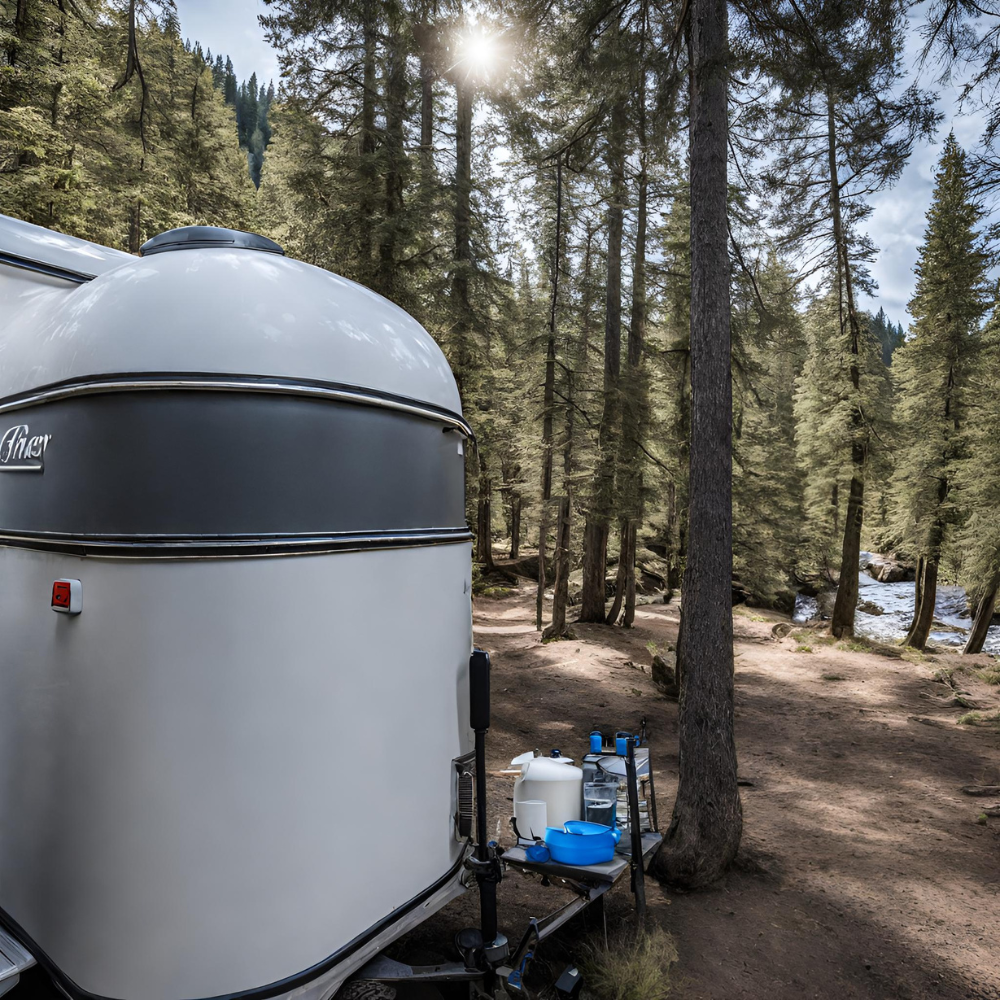Are you RV’ing or traveling through freezing weather this winter?
Are you storing your RV in freezing weather?
Most people are aware that hoses may burst if left unprotected in freezing weather, but water filters, canisters, and adjustable regulators can all be damaged by freezing, so you should take these 6 Steps to prevent a big mess and big expense.
1. Empty the water from your canisters or in-line filters – Water can freeze overnight, or even if you are traveling through freezing weather for several hours  continuously. The best way to prevent damage to your in-line filters or canisters is to dump the water from the canisters or filters before the freezing starts. Make sure not to forget your under sink canister if the heat won’t be on in your RV for a few hours. This will not only keep your canisters from damage, it will also prevent a huge water mess when it warms up.
continuously. The best way to prevent damage to your in-line filters or canisters is to dump the water from the canisters or filters before the freezing starts. Make sure not to forget your under sink canister if the heat won’t be on in your RV for a few hours. This will not only keep your canisters from damage, it will also prevent a huge water mess when it warms up.
2. Bring filter cartridges into your coach – In addition to dumping the water from your canisters, you should keep your filter cartridges from freezing. For a sediment or a carbon block filter, freezing will create micro-cracks in the mechanical structure of the filter, allowing larger particles to get through the filter and reducing the effectiveness of the carbon filter.
3. Keep the regulator warm – Gauges have a bourdon tube (converts pressure to a reading on the gauge) inside that always will have a little bit of water in it. This tiny amount of water can freeze, which can permanently cause the gauge to read a non-zero value, even with no water pressure applied. If you must regulate your water in freezing conditions, you can either get a fixed regulator for the duration of the freezing weather, or bring your regulator into an enclosed storage area or box that can be heated or insulated.

Frozen Garden Hose and water pipe connection
4. Keep water running overnight – Just like in a house, keeping the water running through a faucet in the RV can prevent the water from freezing.
5. Warm it up – Wrapping the hose in heat tape and enclosing the regulator and/or filter canisters in an insulated box can prevent a freezing mess. If your filter system is outside, you can use an old ice chest with a shop light inside as a protection against freezing.
6. Winterize your RV for storage – When you will be storing your RV in freezing weather, follow your RV owners manual to prepare your RV for storage. This normally includes draining all the water from your system, including the water heater and storage tank, then filling the pipes with non-toxic antifreeze solution. In any case, the canisters, hoses, regulators and filters should all be protected as described above.




